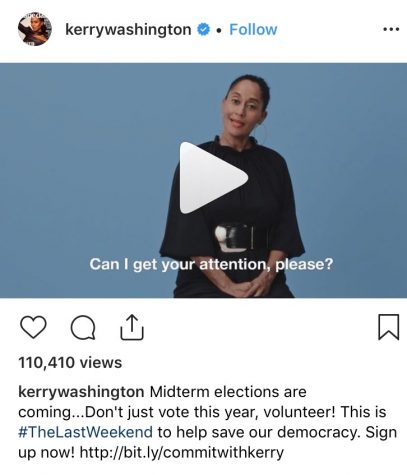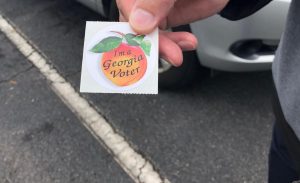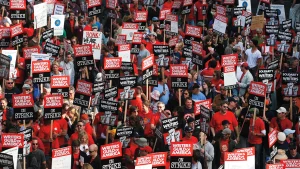Media skewing opinions
November 7, 2018
On this wide expanse of a network through newspapers, websites, television, social media, and other platforms, only the loudest voices can be heard. Those with the largest amount of followers are the ones that drown out the voices of others around them. Politicians who have the most money or greater background are heard over the humbler protester seeking change.
The media today provides an audience for political powers to influence the masses. Communication can be easily spread at a rapid pace where people are bombarded by opinions and exposed to the news in seconds. Access to more technology means a greater audience for those in power to exert their views on the public which shapes what the public believes. Influencing the media means using it to one’s advantage to skew opinions.
With an increased use of social media platforms, several users have gained a large following and receive the title as “influencers”. These social media “influencers” can spread their opinions on a grander scale and can endorse political opinions and views which results in their followers adapting suit. For example, Kerry Washington posted a video encouraging over 100,000 viewers to vote to “save democracy”; her influence reaches millions of others as her videos are reposted, liked, shared, and promoted. Her values will be spread to countless others. The more popularity a person has, whether it’s by the number of followers or a larger presence under the public eye, the more standing that person has in the media, and ultimately, the more influence they hold.
 Screenshot was taken by Sadie Rawlings
Screenshot was taken by Sadie Rawlings
An example from this upcoming midterm election, singer Taylor Swift posted an Instagram picture encouraging her 112 million followers to vote. She encouraged her followers to support the person who will uphold “all human rights”. Although she disabled the comments on the picture, her fans will be able to read her political views which will sway their own personal opinion.
This quick communication can have consequences like the spreading of false information and promoting propaganda. In the media, sources are falsely credited or edited; anyone’s words can become twisted by one who wants to portray a certain belief. A person’s voice can be changed by inaccurately portraying them in the media. Those who participate in the media’s audience are susceptible to this propaganda and can be misleading.
“The media has always shaped the opinion of the public whether the general population admits it or not,” junior Ayesha Basara said.”The power of media has not only strengthened over the past few years but has also laid out facts about certain political agendas that have been concealed from the nation.”
With the communication of news, voters are subjected to the knowledge that is presented to them through the media. Voices are altered. Opinions are changed. Politicians and influencers will use their power to skew the opinions of the public to suit their needs which leaves voters desperate for the truth. Who is the voter supposed to trust if they can no longer rely on the media?





